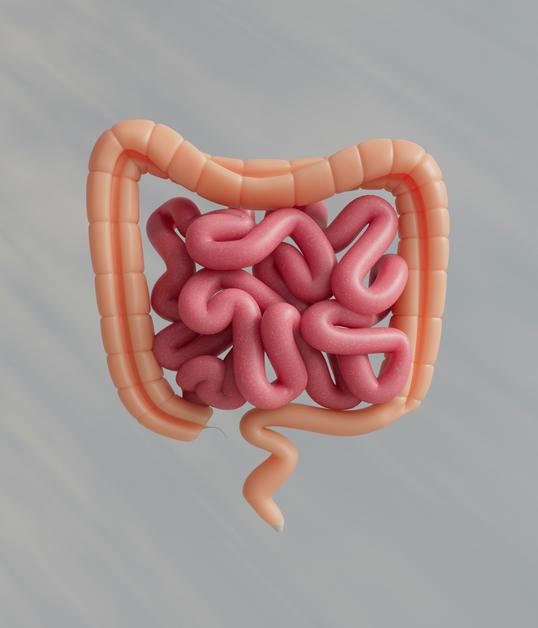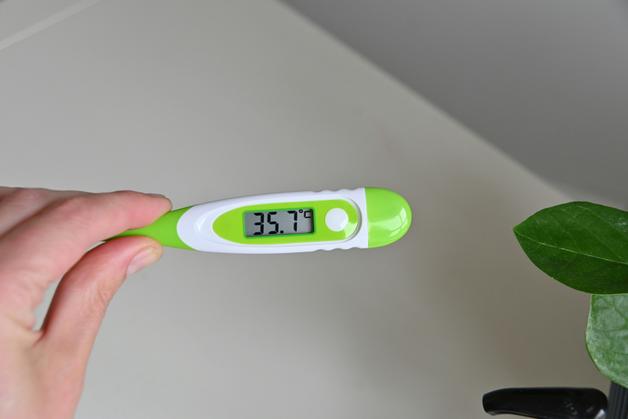All those early worries about your baby’s tiny tummy—gurgling sounds at night, episodes of colic, or a sudden bout of diarrhea after antibiotics—can turn any peaceful day into a whirlwind of uncertainty. In this universe of first smiles, sleepless nights, and endless questions, the concept of baby probiotics emerges: live, friendly bacteria, so tiny yet so influential, that science is steadily confirming just how much their presence (or absence) may impact your infant’s digestive comfort, immune defences, and even mood. Parents often ask: Do baby probiotics genuinely help? Are they safe from day one? How can you select from dozens of drops, powders, and formulas lining the pharmacy aisles? Let’s examine the real impact of baby probiotics, explore what science supports, and unravel practical steps—always with a gentle focus on your child’s unique needs.
Understanding baby probiotics: what are they and why do they matter?
“Probiotics”—the very word conjures images of tiny allies, bustling within your baby’s gut. Medically speaking, baby probiotics are preparations containing live beneficial bacteria, such as Bifidobacterium (for instance, B. lactis BB12) and Lactobacillus (like L. reuteri DSM 17938). Their role? To recover or maintain the delicate microbial balance in your infant’s digestive tract, especially when natural equilibrium is disturbed—think c-section birth, or after a round of antibiotics.
While breast milk elegantly delivers not just probiotics but also human milk oligosaccharides (HMOs)—that serve as nourishment for these “good” bacteria—formula brands now compete, touting probiotic and prebiotic-enriched blends. Drops, too, are readily available, custom-designed for infants (never an afterthought, as the needs of a newborn’s gut microbiota are distinct from adults).
Imagine the gut as an evolving ecosystem. Every moment of colic, every gassy episode, or immune quirk can often be traced to the microscopic communities living within. When disturbances like illness, medication, or feeding difficulties arise, probiotics can offer gentle, non-pharmaceutical support—sometimes shortening crying periods in colicky babies, sometimes supporting more efficient digestion. But, as the science confirms regularly, the right strain, the right timing, and proper administration make all the difference.
The infant gut microbiome: nature’s foundation and what shapes it
Consider the gut microbiome as a first shield and trainer for the immune system. At birth, a baby’s intestine is nearly sterile, but colonisation begins at lightning speed. Vaginal delivery paves the way for maternal transmission of hardy, beneficial strains (Bifidobacterium, Lactobacillus), giving these children resilient gut flora from the start. C-section? The sequence alters, often resulting in delays and a different bacterial composition—sometimes linked with increased risks of atopic disorders or gastrointestinal upsets.
Diet steps in as a major influencer. Breastfeeding floods your infant’s gut with a continuous supply of live bacteria and the remarkable HMOs, supporting a preponderance of bifidobacteria—microbes renowned for soothing the gut lining and “training” the immune system to distinguish friend from foe. Formula, even if balanced, is not the microbiological twin of breast milk, and the microbial profile differs accordingly.
Add in the unavoidable events—antibiotic courses, which can “clear-cut” not just problematic germs but also beneficial strains, or the varied exposures to pets, older siblings, or sanitised environments—all of which nudge the gut microbiota in unique directions. Most changes are transient, especially with breastfeeding and use of targeted probiotics that restore balance after such disruptions. A diverse, balanced gut flora in infancy has been linked to better digestion, fewer allergies, and sometimes a milder course for pesky issues like eczema.
Types and sources: discovering which baby probiotics really help
Not every bacteria is equal—this is not just a scientific catchphrase, but a vital consideration. Baby probiotics typically feature precise strains like Lactobacillus reuteri DSM 17938 (noted for colic relief), Bifidobacterium species (B. infantis, B. lactis BB12) for digestive comfort, and Lactobacillus rhamnosus GG, especially favoured after antibiotics or diarrheal illnesses. Their effects are not interchangeable—each interacts differently with an infant’s gut.
But what about “synbiotics” or “prebiotics”?
- Probiotics: live, beneficial bacteria.
- Prebiotics: special fibres (like HMOs, inulin, FOS) that nourish good bacteria.
- Synbiotics: both combined, providing a “seed and feed” approach for the microbiome.
Natural sources? Breast milk heads the list, no rival in early months. However, as the months pass, and especially for formula-fed infants, some formulas with added probiotics and prebiotics aim to mimic this benefit. For infants past six months, the occasional spoon of yogurt or fibre-rich foods (bananas, oats) can further support gut health—though, as paediatricians regularly caution, probiotic-rich foods before six months are not encouraged.
Supplements are not all created equal. Look for those specifying the strain (for credibility—no vague “Lactobacillus” listing), guaranteeing a colony-forming unit (CFU) count until expiry, and holding third-party certifications for quality.
Why consider baby probiotics: practical reasons and promising research
The gut is not just for digestion—about 80% of immune cells reside here, making every meal, every microbe, every decision about feeding, count. Baby probiotics have demonstrated the ability to help “train” the immune system, dampening exaggerated responses and perhaps steering children away from atopic dermatitis or allergies.
Digestive harmony? These friendly bacteria act as “crowd control,” edging out gas-producing and less-desirable bacteria, regulating stool patterns and sometimes diminishing colic, constipation, or reflux. Studies have pinpointed Lactobacillus reuteri DSM 17938 as effective in easing colic among breastfed babies, while L. rhamnosus GG and Saccharomyces boulardii are well-documented for tackling antibiotic-associated diarrhea.
Much of the benefit is visible only during continued supplementation—most strains don’t permanently colonise. Does this mean, then, that once you stop, the benefit evaporates? Not entirely, as periods of better gut function may help the system “remember” more robust patterns, though ongoing use is often necessary for persistent issues.
For allergies and eczema, the story is still evolving. Early and balanced microbiome exposure may reduce the later risk of these conditions—a field of intense research, with promising but still-developing evidence.
How and when to give baby probiotics: practical tips for parents
Timing is about context. Baby probiotics are safe from birth in healthy, full-term infants, but choice and dosage depend on your baby’s situation. If born via c-section, after antibiotics, or during acute digestive upset (colic, diarrhea, constipation), supplementation may be worth discussing with your doctor.
Practical dos:
- Choose only supplements formulated for infants (not generic probiotics!).
- Never exceed recommended dosage (usually, 5 drops a day—always check the packaging).
- Don’t touch droppers to your baby’s mouth (prevents contamination).
- Mix powders or drops with breast milk or formula at room temperature—not hot, as heat destroys live bacteria.
- Keep to a routine (whether morning or bedtime), as consistency matters more than the exact timing.
Always consult your child’s doctor—especially for premature babies, those with very low birth weight, or known immune vulnerabilities.
The evidence: what clinical research really shows
The medical literature backs several distinct probiotic strains for infants. Lactobacillus reuteri DSM 17938 stands out for reducing crying in breastfed babies with colic (shorter crying spells, less stressed evenings). L. rhamnosus GG and Saccharomyces boulardii help shorten diarrhea duration, particularly after antibiotics.
Constipation? Evidence is less robust. While some families report softer stools, research remains mixed, with outcomes differing by strain and supplementation period.
The prospect of preventing future allergies or eczema remains intriguing. A baby’s microbiome, exposed early to diversity and balance, may indeed help “set the switch” against allergic tendencies—but this is an area still under exploration, not a claim of guaranteed protection.
Long-term impacts differ for formula-fed versus breastfed babies, with continued supplementation often playing a key role in maintaining, if not establishing, those benefits.
Is it safe? What should parents watch for with baby probiotics
For healthy, full-term babies, side effects are minimal: perhaps mild extra gas, or changes in stool consistency that resolve naturally. For those babies born preterm, with extremely low birth weight, or specific health issues, the calculus changes—rare but serious complications like sepsis are documented, especially if a product not specifically tested for infants is used.
Labels matter: seek brands specifying strain, CFU count, and carrying certifications from trusted, independent bodies. Avoid vague, untested supplements and grandiose claims. Simple formulations with the smallest number of added ingredients tend to be best tolerated.
Don’t forget storage conditions—some probiotics need refrigeration, others just a cool, dry place. And expiration dates are not suggestions.
Practical ways to support your baby’s gut beyond supplements
Probiotics are a piece—not the entire puzzle. Breastfeeding remains one of the most effective means to naturally populate your baby’s gut with both live bacteria and nourishing prebiotics. Gentle skin-to-skin contact and direct feeding encourage microbial diversity and immune strength.
Once past the weaning threshold, introducing a variety of prebiotic-rich foods (bananas, oats, artichokes) helps maintain a balanced gut flora. Sensible hygiene (frequent handwashing without sterilising every surface) encourages healthy microbial exposure.
Limit antibiotic use to truly necessary situations, knowing every course can disrupt your child’s newly established microbiota, but also trusting that with thoughtful feeding and, when needed, baby probiotics, balance generally returns.
Above all, trust your own observations. If your baby is thriving, alert, and comfortable—whether exclusively breastfed, mixed fed, or using a carefully chosen supplement—this is your best sign you’re on a good path.
Key takeaways
- Not every baby requires baby probiotics, but the right strain, at the right time, can ease digestive troubles, support immunity, and sometimes reduce future allergy risks.
- Look for infant-specific products, with clearly labelled, clinically researched strains, and guard against vague labeling or unsupported health claims.
- Breastfeeding provides probiotic and prebiotic support rivalled by no supplement; use products especially when recovery from antibiotics or c-section is needed.
- Probiotics offer benefits chiefly during regular use; their positive effects typically fade after cessation unless supported through diet and environment.
- Overall gut health thrives in a nurturing home, where diet, moderate hygiene, and gentle routines work together—supplements are just one possible support.
- For guidance tailored to your child’s needs, trustworthy resources and health professionals stand ready to support you. Families wishing for locally adapted advice and free health checklists for their children can also download the application Heloa.
Questions Parents Ask
Can you give probiotics to a newborn?
Yes, certain baby probiotics are designed for use right from birth. Still, before starting any supplement—especially with babies born preterm or with medical conditions—a consultation with your paediatrician is wise. Your healthcare provider will be able to evaluate if this option suits your baby, recommending the safest strain and dosage adapted for your child’s unique profile.
What is the best time of day to give baby probiotics?
No universal answer exists for this—what matters most is consistency. Some parents prefer mixing probiotics with the morning bottle or breastfeed for routine, while others choose bedtime. The essential point is to administer baby probiotics at the same time each day, ensuring regularity in bacterial support. Always avoid mixing the supplement with hot liquids, as this may reduce live bacterial counts.
Are there risks in giving probiotics to infants?
For the majority of healthy babies, side effects from baby probiotics are rare and typically limited to mild bloating or slightly altered stool patterns. However, for premature infants, those with very low birth weight, or special medical needs, consulting with a paediatrician is necessary before introducing supplements. Always select well-researched, infant-specific products with clear strain and CFU labeling—it’s your baby’s wellbeing, and quality truly matters here.









